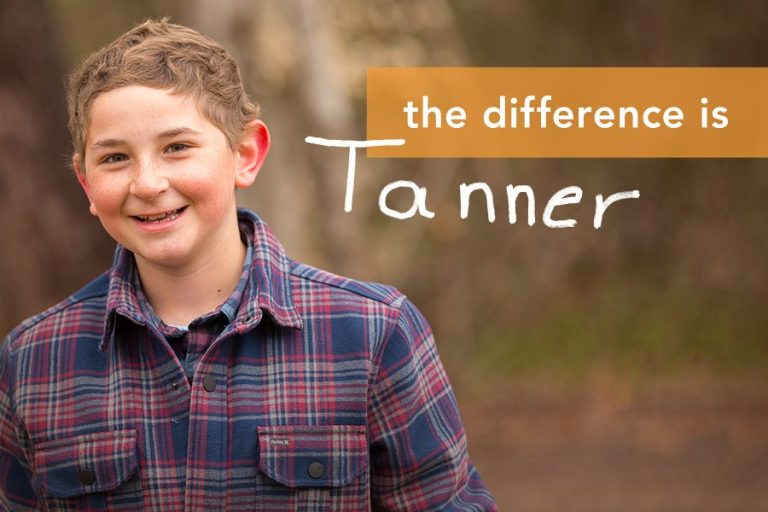Connor Dykes, now seven years old, is a ball of energy. From the moment he wakes until his head gently rests on his pillow, he’s nonstop motion – laughing, singing, asking inquisitive questions, and alternately playing and fighting with his older sister Joselyn. In other words, he’s a lot like any other first-grader.
That Connor is alive at all is miraculous.
When he was six weeks old, Connor became restless and started throwing up and crying inconsolably. Nothing seemed to comfort him. Then within minutes the entire left side of his head and left eye became swollen.
Mindy immediately drove to the nearest hospital in Hudson, Wis. Along the way, his cry was becoming weaker; he was clammy, shaking, and pale. His conditions were severe enough to need the expertise of a larger hospital in Minneapolis, so Connor was transferred there by ambulance.
When the family arrived, Connor was sent to have a CT scan. When the doctor returned, Mindy immediately knew that something was horribly wrong. “She had that ashen look, and ER doctors don’t get that look very often.” She sat Mindy down and told her that Connor had a brain tumor the size of an adult fist. The mass took up his entire left hemisphere.
Big risk. Little choice.
A neurosurgeon informed the family that emergency surgery was necessary, but was extremely risky, and it was likely that their child would not survive. His vital organs were beginning to shut down. They had no choice—either proceed with the surgery, or lose their son for sure.
During the operation, Mindy sat in disbelief; David, in anger. The Dykes’ first son, Christopher Gabriel, had been stillborn, and David felt like he was living the nightmare over again. “I loved him, but I put these walls up, because I was going to have to plan this… putting another boy in the ground.”
Connor, however, had other ideas.
Four and a half hours later, the neurosurgeon came into the waiting room to tell the Dykes that he had successfully removed the tumor, and that Connor was stable. Within 10 minutes of David and Mindy entering the recovery room, Connor opened his eyes and looked at them. For David, this was nothing short of a miracle. “Something in me right then said, ‘He’s going to make it.’”
However, the Dykes’ fight was far from over. Three days later, Connor was diagnosed with a rare Stage IV Multiforme Congenital Glioblastoma. Their pediatrician, Dr. Christopher Moertel, clinical director at the Pediatric Brain Tumor Program, knew that the protocol for Connor’s treatment needed to be innovative; they were delving into uncharted territory, as most children with this type of tumor die in childbirth.
Connor went through five months of chemotherapy, and then he became the youngest person ever at University of Minnesota Children’s Hospital to receive an autologous bone marrow transplant.
“He’s just amazing.”
The bone marrow transplant was as success, as was the chemotherapy, and now Connor is considered cured. Mindy and David thank the strides in medical research for their son’s life. Mindy says, “Ten years ago, Connor wouldn’t be here. They wouldn’t have had the technology to do a CT scan 30 seconds after he entered the ER. Then there’s the big stuff, the bone marrow transplant, the right combination of chemotherapy drugs.”
The Dykes never hesitated to sign off on any research Connor’s doctors wanted to do. Part of his tumor is now in California; part of it is at Mayo. Like most parents in their situation, David and Mindy don’t want any other families to have to go through what they did.
Today, Connor has some developmental disabilities, but he is progressing daily. He wears hearing aids due to hearing loss from the aggressive chemotherapy, but this too is showing signs of improvement. Also, one of his optic nerves was severed because of the tumor, so he has partial blindness in his right eye and has to wear glasses. “His sister just says it makes him look like Harry Potter, so that’s okay,” says Mindy with a laugh. For the Dykes, these are very small prices to pay to have their son happy and healthy.
“If you saw his CT scan and what is left of his brain and what is missing, I don’t know how he does the things he does,:” says Mindy. “He’s is progressing so well and so fast. He’s just amazing!”



